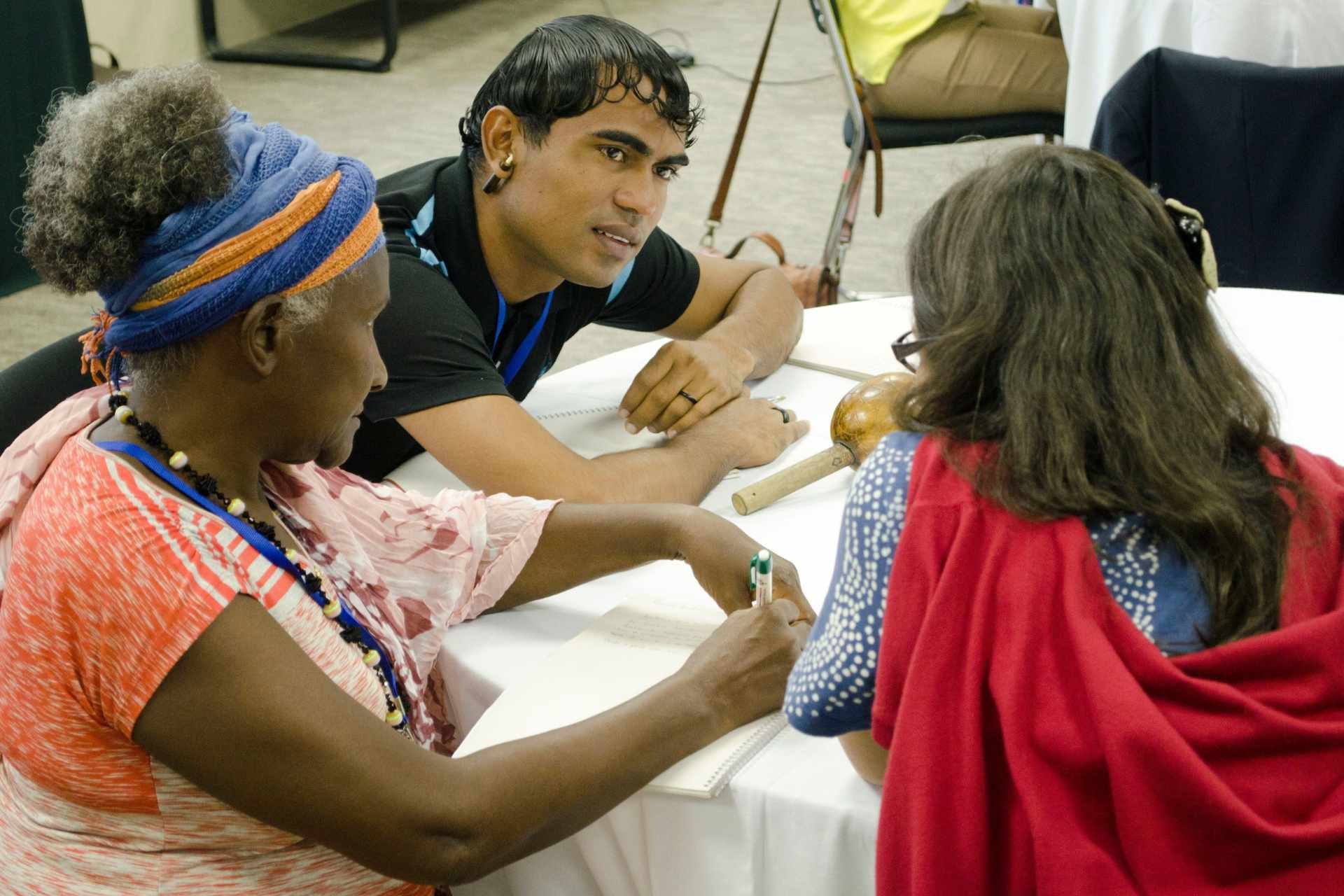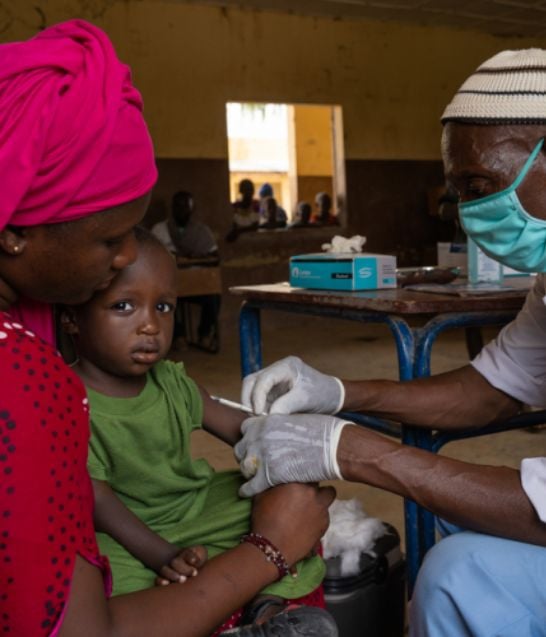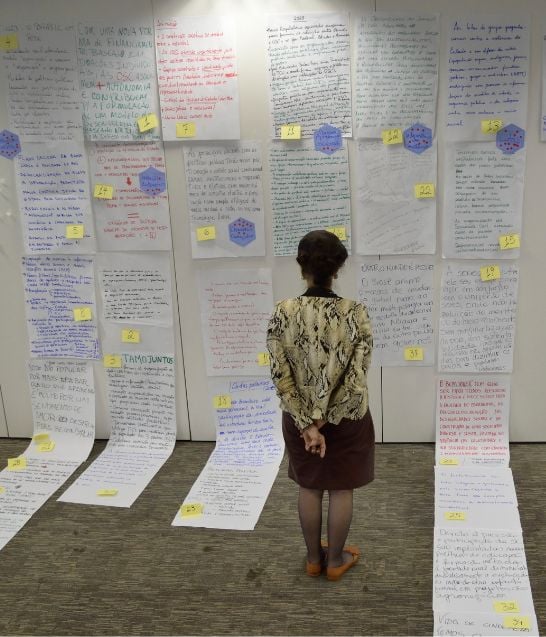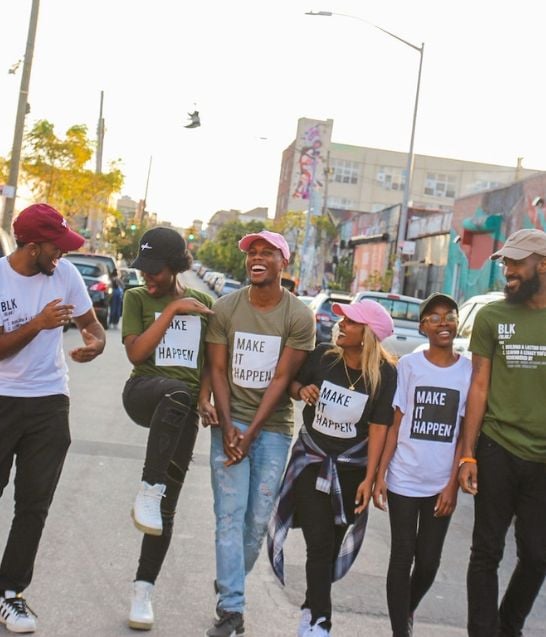
Race and power
Explore Reos’ work in the world to challenge and dismantle structural racism and contribute to building equitable societies.
Colonisation, which involved the systematic domination and exploitation of Indigenous Peoples and their lands, created deep-rooted inequalities that continue to affect many societies worldwide.
These inequalities are found in socioeconomic and political, and cultural realms. Decolonisation is the process of overcoming these disparities and restoring Indigenous Peoples' dignity and self-determination.
Racism is built into many structures, from the education and legal systems to employment and government.
Dismantling structural racism requires a structural shift in societal norms, beliefs, and values.
Reos Partners’ work in decolonisation and dismantling structural racism helps transform discriminatory practices and policies from the root level.
Our approaches strengthen systems affected by these policies, expand access to opportunities, and build a more just and equitable society.
Decolonisation and dismantling structural racism benefit everyone, ensuring that the past is not forgotten and the future is fair.
Examples of our work on race and power

Dismantling structural racism in MSF Southern Africa
Challenge: The colonial legacy of inequality maintains a strong presence in countries worldwide. One particular area where the power imbalances are highlighted is the aid sector. MSF’s international movement was born in the 1970s and is interconnected with the legacy of colonialism. They wanted to work to end racism, discrimination and inequality in their organisation.
Partnership: In 2020, MSF Southern Africa embarked on a journey with Reos Partners to dismantle the structural racism in their organisation. They set themselves an ambitious three-year project timeframe. The process began with a series of workshops where people were encouraged to share experiences and thoughts on structural racism. Commitments were also made based on the recommendations following the workshops.
Transformation: As a result of the process, MSF has appointed a Dismantling Structural Racism Reference Group, which includes members from Reos Partners and MSF staff. Furthermore, the Executive management team and managers at MSF Southern Africa have committed to a time-bound action plan until 2023 based on agreements following the recommendations.

RINGO: Re-imagining INGOs and the role of global civil society
Challenge: There have been calls to transform the international non-governmental organisation (INGO) sector for many years. The Re-imagining INGOs (RINGO) project has sought to harness the energy in the sector and demand for change from below to finally deliver a better, more balanced civil society in which power and resources are more equally shared. Letting go of power is challenging, but so is taking it.
Partnership: In partnership with Rights CoLab and the West African Civil Society Institute (WACSI), Reos Partners convened a social lab of global innovators who represent the system of global civil society (including local partners, funders, and INGO leaders). RINGO is the first globally coordinated cross-sectoral effort to revolutionise the sector by interrogating INGOs’ purpose, structures, power, and positioning.
Transformation: The project was initially designed as a two-year process which resulted in the creation of several prototypes. Despite the project ending in December 2022, energy to drive transformation in the system remains high, and the project is currently in Phase II, now led by WACSI. Reos Partners continues to participate on the core team for RINGO.

Transformative scenarios for the future of black leadership in Britain
Challenge: Dominant narratives and rigid stereotypes about marginalised communities in Britain can create tangible stumbling blocks, hindering growth, dignity and progress in all aspects of life. This project proposes to utilise art and storytelling to stimulate visions in the public imagination about the future of black leadership in Britain and to create new narratives about the future of Black Leadership.
Partnership: The partnership is between Ubele Initiative and Reos Partners. The team behind it also wants to take a multistakeholder approach to enable the community at many levels to engage in the process.
Transformation: The project is currently in the first phase, so further outcomes are anticipated as the project progresses. In early 2023 we participated in the Black Leadership Group’s annual conference on 21 March, Make the Path by Walking It, sharing how tools such as transformative scenarios and social labs can help to dismantle structural and systemic racism.
Race and power videos
